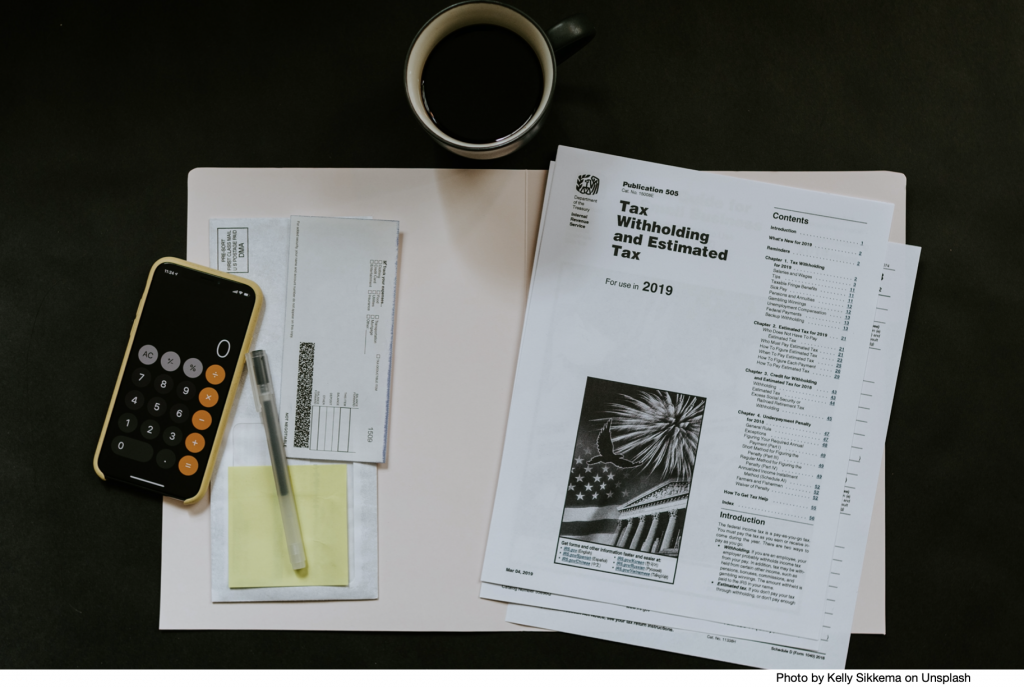The Corporate Activity Tax (CAT)
(Often referred to as the Gross Receipts Tax)

From From Oregon Department of Revenue:
What is this new tax?
A: The new Corporate Activity Tax (CAT) is imposed on businesses for the privilege of doing business in this state. The CAT is not a transactional tax, such as a retail sales tax, or an income tax. Oregon’s CAT is measured on a business’s commercial activity–the total amount a business realizes from transactions and activity in Oregon. Certain items are excluded from the definition of commercial activity and, therefore, will not be subject to the CAT. In addition, Oregon’s CAT allows a 35% subtraction for certain business expenses.
The CAT is applied to Oregon taxable commercial activity in excess of $1 million. The tax is computed as $250 plus 0.57% of Oregon commercial activity of more than $1 million. Only taxpayers with more than $1 million of taxable Oregon commercial activity will have a payment obligation.
The Department of Revenue has begun developing administrative rules for the new CAT program. We encourage all stakeholders to provide feedback. Please send any comments to cat.help.dor@oregon.gov.
Who is subject to the CAT?
A: Any business, or unitary group of businesses, doing business in Oregon may have responsibilities under the CAT. This includes all business entity types, such as C and S corporations, partnerships, sole proprietorships, and other entities.
The CAT sets four thresholds to determine whether a business or unitary group has CAT responsibilities. These thresholds are based on the amount of commercial activity the business or unitary group earns in Oregon over the course of the year.
Excluded–No Requirement
Less than $750,000
Business or unitary group with less than $750,000 of Oregon commercial activity are excluded from all CAT requirements.
Registration Threshold
$750,000+
Business or unitary group with Oregon commercial activity in excess of $750,000 must register for the CAT.
Filing Threshold
$1 Million
Business or unitary group with Oregon commercial activity of $1 million must file a return.
Tax Payment Threshold
More than $1 Million
Business or unitary group with taxable Oregon commercial activity in excess of $1 million must file a return and pay tax.
If you are unsure whether your business is part of a unitary group, please see our Unitary Group FAQ.
Who is not subject to the CAT?
A: The CAT legislation excludes certain types of business entities from any CAT liability, unless such business has unrelated business taxable income under federal law. Exempted entities include but are not limited to:
Nonprofit organizations.
Farmers’ cooperatives that are exempt from federal income taxation.
Federal, state, and local government entities (e.g., public school districts).
Hospitals, long-term care facilities, and other entities subject to the health insurance premium and managed care assessment or the hospital and long-term care facility assessment.
When is property brought into Oregon included in taxable commercial activity?
A: A taxpayer is required to include the value of property transferred into Oregon within a year of purchase outside Oregon if the purchase outside Oregon and transfer into Oregon was intended, in whole or in part, to avoid the CAT. Omitting the value of property purchased outside of Oregon and transferred into Oregon within one year of purchase will be considered a representation by the taxpayer that there was no intent to avoid the CAT. This is subject to review by the department.
Otherwise, the taxpayer should include as commercial activity on its CAT return the value of property transferred into Oregon within a year of the purchase outside Oregon.
Can I pass the CAT on to my customers?
A: The laws establishing the CAT (Oregon Laws 2019, chapters 122 and 579) do not prohibit any business from recovering a business expense when setting the total price for the sale, lease, or license of an item or the sale of a service. The CAT is imposed on the entity doing business in Oregon and is considered part of the business’ expenses. A business may include the CAT with other business expenses when setting the total price charged to customers. However, the total price charged (including any amount estimated to be attributable to the CAT) is included in the business’ commercial activity.
How can I contact the Oregon Department of Revenue with questions about the CAT?
A: Visit our website at https://www.oregon.gov/DOR/. Click on the “Business” link, then the “Corporate Activity Tax” in the “Information” column on the next page. We have a mailing list registration for future updates. Also, you can email your questions to Cat.help.dor@oregon.gov.
Temporary rules
Corporate Activity Tax
Visit the Corporate Activity Tax page for draft rules.
To provide input on CAT rules, email cat.rules.dor@oregon.gov.
Temporary Administrative Order
150-317-1000 Definition of Commercial Activity
150-317-1010 Substantial Nexus Guidelines for Corporate Activity Tax
150-317-1020 Factors Used in Determining Whether a Group of Persons Forms a Unitary Group
150-317-1030 Sourcing Commercial Activity to Oregon from Sales of Tangible Personal Property
150-317-1040 Sourcing Commercial Activity Other Than Sales of Tangible Personal Property in This State
150-317-1100 Agent Exclusion
150-317-1130 Property Brought into Oregon
150-317-1200 Cost Input or Labor Cost Subtraction
150-317-1300 Estimated Tax When Estimated Payments Are Required
150-317-1310 Estimated Tax Payments Delinquent or Underestimated Payment or Both, Constitutes Underpayment
150-317-1320 Estimated Tax Unitary Groups and Apportioned Returns
150-317-1330 Extension of Time to File
Property Tax
Property Tax Deferral–Temporary Administrative Order
150-311-0655 Deferral Criteria When Applying with a Reverse Mortgage


Advertisement